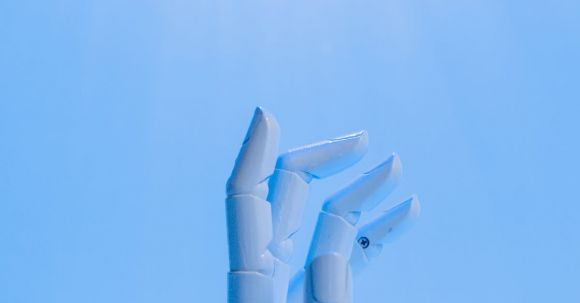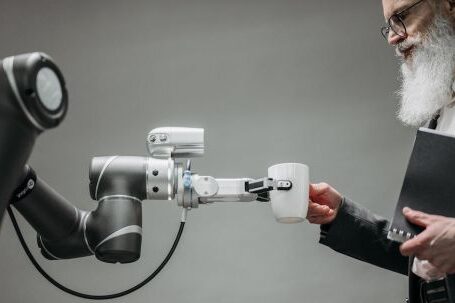Artificial Intelligence (AI) has been a topic of fascination and speculation for decades, and in recent years, its presence has become increasingly prevalent in our daily lives. From voice assistants like Siri and Alexa to self-driving cars, AI has made significant advancements that have transformed various industries. Embracing these AI innovations is not only essential for staying competitive but also for creating a brighter future for humanity.
Enhancing Efficiency and Productivity
One of the most significant advantages of AI is its ability to enhance efficiency and productivity across different sectors. By automating repetitive and mundane tasks, AI frees up human resources, allowing them to focus on more complex and creative endeavors. For example, in the healthcare industry, AI-powered chatbots can handle basic patient inquiries, freeing up medical professionals to provide more personalized care.
Revolutionizing Customer Service
AI has also revolutionized customer service by providing faster and more personalized support. Chatbots powered by natural language processing can understand and respond to customer inquiries in real-time, offering 24/7 assistance. This not only improves customer satisfaction but also reduces costs for businesses, as fewer human agents are required to handle customer queries.
Transforming Education
In the field of education, AI has the potential to transform the way we learn. Intelligent tutoring systems can adapt to individual students’ needs, providing personalized guidance and feedback. AI can also assist teachers by automating administrative tasks, such as grading assignments, allowing them to focus on providing quality instruction.
Driving Innovation in Healthcare
AI innovations have the potential to revolutionize healthcare, improving diagnosis, treatment, and patient care. Machine learning algorithms can analyze vast amounts of medical data to identify patterns and predict outcomes, aiding in early detection and more accurate diagnoses. AI-powered robots can also assist in surgeries, increasing precision and reducing the risk of human error.
Advancing Sustainable Solutions
AI is also playing a crucial role in tackling environmental challenges and advancing sustainable solutions. From optimizing energy consumption to predicting and mitigating natural disasters, AI can help us make more informed decisions to protect our planet. For example, AI-powered smart grids can optimize energy distribution, reducing waste and reliance on fossil fuels.
Addressing Ethical Concerns
While the potential benefits of AI are vast, it is crucial to address the ethical concerns associated with its development and implementation. Issues such as privacy, bias, and job displacement must be carefully considered to ensure that AI innovations are used responsibly and to the benefit of all. Striking a balance between technological advancements and ethical considerations is essential for building a brighter future.
Preparing for the Future Workforce
As AI continues to advance, it is important to prepare the future workforce for the changes it will bring. Emphasizing education and training in STEM fields will equip individuals with the skills necessary to thrive in an AI-driven world. Additionally, fostering a culture of lifelong learning and adaptability will ensure that individuals can embrace new technologies and navigate the evolving job market.
Embracing AI for a Brighter Future
In conclusion, embracing AI innovations is crucial for creating a brighter future. From enhancing efficiency and productivity to revolutionizing customer service and transforming various industries, the potential benefits of AI are immense. However, it is essential to address ethical concerns and prepare the future workforce to navigate the changes AI will bring. By harnessing the power of AI responsibly, we can build a future that is not only technologically advanced but also sustainable, inclusive, and focused on improving the lives of all. Embracing AI is not just an option; it is a necessity for a brighter and more prosperous future.





